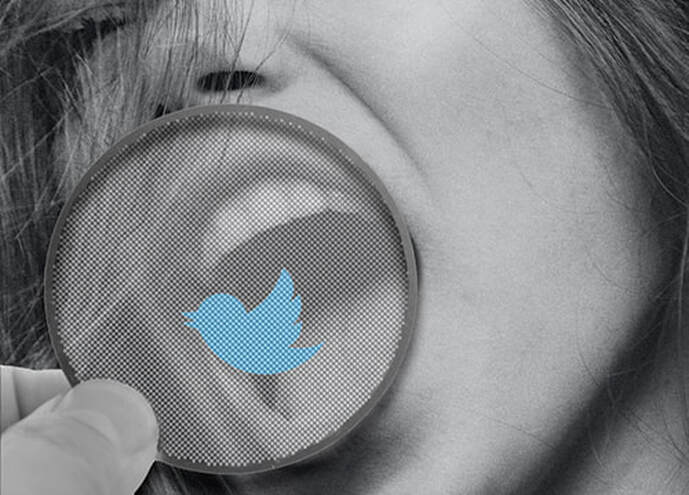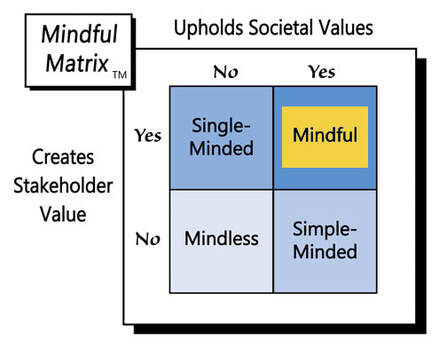author of Honorable Influence - founder of Mindful Marketing
Serial entrepreneur and one of the planet’s richest people, Elon Musk is buying Twitter— perhaps the world’s most pervasive and controversial communication platform. The reasons behind the $44 billion purchase are likely multifold; however, Musk claims that one of his primary motivations is to reduce the medium’s content moderation and to allow more free speech.
Free speech is fundamental to democracy: Government of-by-for the people is predicated on individuals speaking their minds, including ideas critical of the government. That’s why the First Amendment to the U.S. Constitution states:
“Congress shall make no law respecting an establishment of religion, or prohibiting the free exercise thereof; or abridging the freedom of speech, [emphasis added] or of the press; or the right of the people peaceably to assemble, and to petition the Government for a redress of grievances.”
Of course, the nation’s founders couldn’t have foreseen social media and how it would be used both to bolster democracy (e.g., Arab Spring in 2010) and to bash people who look or think differently. The founders were people too, who probably fell into petty squabbles and even engaged in personal attacks; however, it’s unlikely that second kind of communication is what they intended to protect in amending the constitution.
Nevertheless, because of the First Amendment, there are no U.S. laws against hate speech; rather, people are free to say pretty much whatever they want about others, without legal repercussions, as Black’s Law Dictionary explains:
“A person hurling insults, making rude statements, or disparaging comments about another person or group is merely exercising his or her right to free speech. This is true even if the person or group targeted by the speaker is a member of a protected class. According to U.S. law, such speech is fully permissible and is not defined as hate speech.”
So, based on the law alone, people can pretty much let loose: no filter needed. Likewise, Musk has suggested that people should be able to ‘say whatever is legal.’ On April 26, 2022, he tweeted his stance:
“By ‘free speech,’ I simply mean that which matches the law. I am against censorship that goes far beyond the law. If people want less free speech, they will ask government to pass laws to that effect. Therefore, going beyond the law is contrary to the will of the people.”
Although it’s true that law and ethics often align, the fit is far from perfect. Some laws even encourage immorality. At a minimum, there’s a lag, sometimes of decades or centuries before legislation aimed at correcting ethical failings come to fruition.
For instance, Jim Crow laws once required physical segregation of people of different races. Likewise, from its inception in 1776, it took the United States nearly two centuries to pass laws forbidding discrimination, namely Title VII of the Civil Rights Act of 1964.
Even now, a leaked Supreme Court memo has spawned demonstrations across the country about abortion law. Regardless of whether Roe v. Wade stands or falls, a significant portion of the population will contend that the law does not match morality.
In short, we all need to be careful of equating what’s ethical with what’s legal. More specifically, if legal-moral equivalence doesn't hold for other social issues, why assume it works for communication-related concerns?
So, instead of rushing ahead with the reasoning, “Because the law allows us to say anything, we should,” individuals and organizations should collect their thoughts and consider three free speech amendments:
1) Practice Self-Restraint: Most people place limits on how much they eat, sleep, watch TV, etc., for their own good and sometimes because their actions impact others. Why not apply the same principle of self-control to our words? This adapted, time-honored moral axiom couldn’t be more apropos, ‘just because we can say it doesn’t mean we should say it.’
In speaking, as in many other things in life, less can be more, and sometimes saying nothing is best. When a baseball infielder mishandles a ground ball that allows the other team to score and win the game, nothing good comes from the coach berating him for his error. The player knows he made a mistake and already feels very badly about it. Even in cases when we’re free to speak, sometimes our thoughts are better left unsaid.
2) Ensure What We’re Saying is True: With social media and little effort, anyone can say practically anything to anyone anywhere in the world, which makes it all-the-more important to prioritize truthfulness. We should be confident of the veracity of what we say, as well as what we share from others. If we’re not certain something is true, we should at least provide a clear disclaimer or even better, wait until we know.
Alec Hill describes deception as encouraging someone to believe something that you don’t believe yourself. That kind of intentional manipulation of the truth is unconscionable. However, it’s also negligent to forward unverified information. A fundamental cost of free speech is the time and effort it takes to ensure the accuracy of what we say.
3) Take Care in How We Say Things: We’ve all heard the sentiment, ‘It’s not just what you say, it’s how you say it.’ We’ve also experienced how much better it feels to receive a constructive critique versus caustic criticism.
When in person, nonverbal communication like welcoming body language and a friendly tone of voice can temper a message that’s not particularly positive. Similarly, a forward-looking frame is often better than a back-facing one. For instance, rather than belittling a person for what they did wrong, “You were so bad!!” focus on the action and project a positive future one: “It might be better to . . .” Both are free speech, but the latter will almost always elicit a more favorable reaction.
Do the preceding three recommendations restrict free speech? In the sense that they urge us not to say everything we think or to say things the way we first think them, yes . On the other hand, ‘filtering’ in the ways described above adds value to the communication by casting the sender in a more positive light and making it more likely that the recipient will take action.
By virtue of their many media-related roles, marketers and Musk have unique opportunities to influence mass communication and interpersonal conversations. Filtered communication is still free speech. It’s also “Mindful Marketing.”
Learn more about the Mindful Matrix.
Check out Mindful Marketing Ads and Vote your Mind!




 RSS Feed
RSS Feed